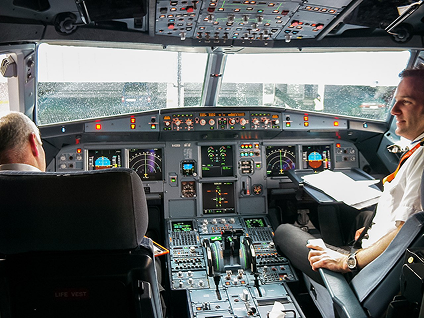From Professional Training to Personal Passion: The Power of A320 Flight Simulators for Pilots and Hobbyists

The Effectiveness of Using an A320 Airbus Flight Simulator: For Pilots and Hobbyists
In the world of aviation, training is paramount. Before a pilot ever takes off with hundreds of passengers on board, countless hours are spent mastering takeoffs, landings, navigation, and handling emergency situations. A powerful tool in achieving these goals is the high-fidelity Airbus A320 flight simulator, which has evolved into an indispensable training asset not only for professional pilots, but also for aviation hobbyists who seek a deeper understanding and appreciation of the flying experience.
1. Immersive Real-World Cockpit Simulation
A standout quality of A320 simulators is their remarkable realism. Step into a simulator, and you’re met with a fully replicated cockpit, down to every switch, knob, and display. The layout, the tactile feel of the controls, the glow of the instrument panels, and even the audible cues, everything is designed to be as true-to-life as possible. For pilots, this means honing their skills in an environment that closely matches what they’ll encounter in an actual aircraft. For hobbyists, who may not pursue a career in aviation, the immersive simulation offers a thrilling inside look at what it’s really like to command the controls of a commercial jetliner.
2. Customizable Training Scenarios
These simulators can replicate a wide range of flight conditions and scenarios: from calm, clear-sky departures to challenging crosswind landings, system failures, and extreme weather conditions. Professional pilots benefit from these scenario variations by learning to handle complex emergencies and unexpected situations, ensuring they’re fully prepared when they step into a real cockpit. For hobbyists, the range of scenarios transforms routine practice sessions into engaging learning experiences. Whether you’re a seasoned simulator enthusiast or a newcomer with a weekend passion for aviation, you’ll find endless opportunities to test and expand your skill set.
3. Instant Feedback and Performance Analysis
Modern A320 simulators come equipped with sophisticated data-gathering capabilities. Every control input, system adjustment, and aircraft response is tracked. After a training session, pilots and hobbyists can review detailed performance analytics, giving them insight into what went right and what could be improved. Instructors can guide professional aviators through repeated drills to master particular maneuvers, while hobbyists can use the data to set personal improvement goals, fine-tuning their technique and gaining a deeper appreciation for the precision required in aviation.
4. Cost-Effective and Environmentally Friendly Training
Simulators offer a means of extensive practice without burning fuel or risking damage to an aircraft. For airlines and flight schools, this translates to lower costs and a reduced environmental footprint. While professional pilots rely on these simulators as a crucial step toward certification and ongoing currency, hobbyists appreciate the flexibility and affordability. Rather than paying for flight hours on a real A320, something beyond the reach of most enthusiasts, hobbyists can perfect their skills in a simulator as often as they please, making advanced aviation training more accessible than ever.
5. Bridging the Gap Between Theory and Reality
Pilot training involves not just practical drills, but also a substantial amount of theory. Understanding aerodynamics, navigation procedures, and aircraft systems is essential. A320 simulators bridge the gap between reading about aircraft systems and actually engaging with them hands-on. Professionals can reinforce their theoretical knowledge through realistic application, while hobbyists gain invaluable exposure to the complexity and intricacy of commercial flight. This hands-on experience turns passive learning into active participation, solidifying knowledge and building confidence.
6. An Accessible Entry Point into Aviation
For those who dream of flight but are unsure where to start, the A320 simulator offers a gentle, yet comprehensive introduction. Hobbyists may come to the simulator with a passion for aircraft or an interest sparked by virtual flight games. What they’ll find is a training environment that goes beyond entertainment, one that showcases the discipline, decision-making, and precision that define professional aviation. This can ignite a deeper interest in the field, potentially inspiring hobbyists to pursue real pilot training or simply enrich their appreciation for the complexities of flight.
Conclusion: A Valuable Resource for All
The Airbus A320 flight simulator stands as a powerful tool for shaping skilled, confident pilots, while also providing hobbyists with a unique opportunity to experience the thrill and challenge of commercial aviation from the safety of the ground. Its high-fidelity cockpit replication, wide range of scenarios, data-driven feedback, cost-effectiveness, and ability to bridge theory and practice all contribute to its enduring value.
For professional pilots, the A320 simulator is essential, a means to build, sharpen, and maintain their expertise. For hobbyists, it’s a window into a world often seen only through the cabin window. In either case, the result is a deeper understanding, stronger skills, and a greater appreciation for the remarkable feat of human flight.






